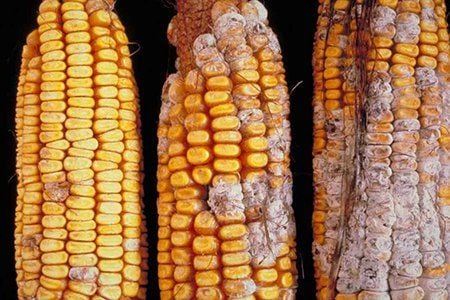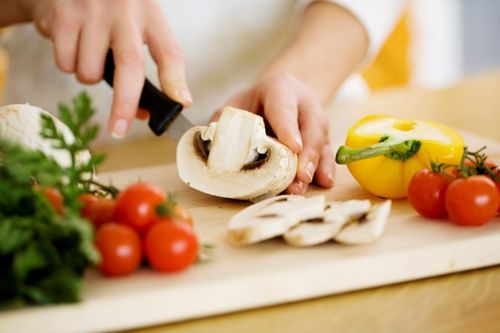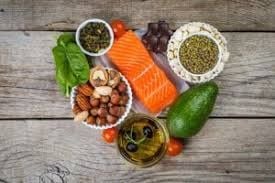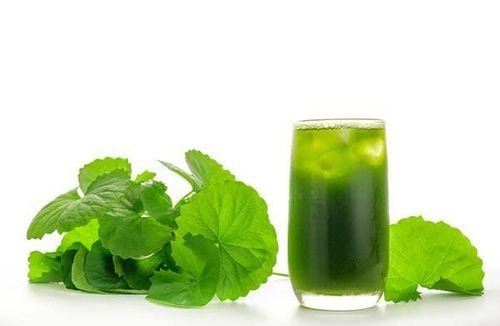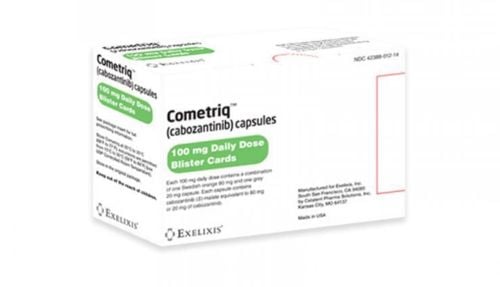This is an automatically translated article.
Cancer and cancer treatments such as chemotherapy, radiation therapy, and stem cell transplants can weaken the immune system making the body more susceptible to food poisoning. Therefore, food safety is especially important in patients during and after cancer treatment.1. Simple things to do to ensure food safety after cancer treatment
The following tips can help reduce your risk of food poisoning. Ask your doctor about any special precautions you should take and for how long.1.1. Shop smart Do not buy food that is stored or sold in an unclean area. Do not buy bruised or damaged fruit or vegetables. Do not buy cans with cracks, dents, or bulges. At the end of the market, choose foods that are perishable by heat and store them in a cooler place on the way home. 1.2. Prepare and clean food carefully Rinse all fresh fruits and vegetables under running water, and dry with a clean towel or paper towel. Clean the top of cans (soft drinks, beer...) before opening them. After preparing food, wash your hands for 20 seconds with hot water and soap. Pay special attention to the area between the fingers and under the nails. Clean utensils and dishes with hot water and soap. Disinfect kitchen and cutting boards by using 1 teaspoon of liquid, unscented bleach in 1 quart of water. 1.3. Prevent cross-contamination Keep raw meat, poultry, fish or their juices away from other foods. Bacteria can be spread through contact with these foods, causing cross-contamination. Do not wash raw meat or poultry as it can spread bacteria to nearby locations. Wash all utensils used to prepare raw foods, including cutting boards and plates, before using them for other foods or cooked meat. Set up a separate cutting board to prepare undercooked meat, fish, and chicken. Never use it for fresh fruit, vegetables, or other ready-to-eat foods.

Tránh để thực phẩm sống và chín cạnh nhau để ngăn ngừa lây nhiễm chéo
1.4. Throw away stale food Eat canned and packaged foods before the expiration date.Consume refrigerated leftovers within 3-4 days. After that time, take it out of the fridge and put it in the trash. Even if food doesn't smell or look spoiled, it may not be safe. Some bacteria, like Listeria, can grow even on foods stored in the refrigerator if they are kept too long.
1.5. Eat out cautions At restaurants, avoid buffets and salads, where food is placed for a long time and in contact with many people. Food can become contaminated when a person has a virus, usually norovirus, or another group of bacteria or viruses. Put any leftover food in bags for takeout, rather than letting the wait staff do it. Refrigerate leftovers as soon as you get home. Choose a restaurant that is clean and ready to prepare food when you order. 1.6. Cook food to the right temperature Use a food thermometer to check the safe temperature of all poultry and meat. For example, a hamburger should be cooked to medium minimum (160 ̊F or 71 ̊C). Get a list of the right cooking temperatures for the foods you cook to make sure your food doesn't deteriorate and retain its nutrients.
1.7. Timely Refrigerate Refrigerate or freeze perishable food within 2 hours of cooking or purchasing it (earlier in warm weather). Proper cooking will kill bacteria, but they can still grow on food that's been cooked too long. Food stored in the refrigerator should be kept below 40 ̊F (4 ̊C). And, food stored in the freezer should be kept below 32 ̊F (0 ̊C).
1.8. Thaw food properly Thaw frozen food in the refrigerator more slowly than at room temperature. You can also thaw food in regular clean water or in the microwave, cooking immediately after thawing.
1.9. Avoid certain foods Certain foods carry a higher risk of bacterial contamination. Includes:
Unwashed fresh fruits and vegetables, especially leafy vegetables that easily hide dirt and other contaminants Raw sprouts, such as alfalfa or bean sprouts Raw or uncooked beef cooked, especially ground beef, or other raw or undercooked meat and poultry
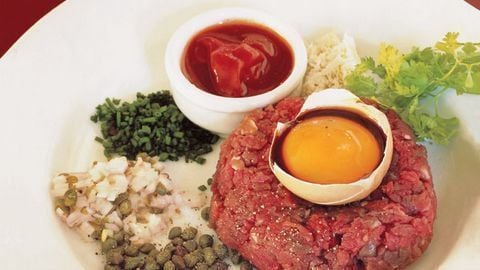
Tránh một số thực phẩm sống ngăn ngừa nguy cơ bị nhiễm vi khuẩn cao
Hot and cold dog meat or lunch deli, including uncooked, dry salami. Always cook or reheat these foods before eating them. Cold pate Raw or undercooked shellfish, such as oysters. Smoked fish Some types of fish, both raw and cooked, because they can contain high levels of mercury. Sushi and sashimi, often contain raw, commercially frozen fish. Especially those labeled "sushi-grade" or "sashimi-grade are safer to eat than others, but consult your doctor before eating them. Unpasteurized beverages, such as unpasteurized fruit juice, raw milk, raw yogurt or cider Soft cheeses made from unpasteurized milk, such as blue cheese, Brie, Camembert, feta , goat cheese, and queso fresco or blanco Uncooked eggs, such as soft boiled, undercooked; raw, unpasteurized eggs; or foods made with raw eggs, such as homemade cookie dough and homemade mayonnaise Prepared salads with eggs, ham, chicken or seafood 1.10. Beware of water Some water sources, such as well water, can contain harmful bacteria or chemicals. Community-provided tap water is fine for healthy people, but it hasn't been tested for safety for people with weakened immune systems. Use a water filter to remove bacterial spores as well as trace organics and heavy metals, for food and drink preparation.
2. Manifestations of foodborne illnesses

Trao đổi với bác sĩ về chế độ dinh dưỡng trong và sau quá trình điều trị ung thư
Symptoms of foodborne illness vary depending on the source of the illness. Usually, the symptoms are the same as those of an upset stomach: Diarrhea, stomach pain or cramping, nausea, vomiting, fever, headache, muscle pain.
The time of onset of symptoms can vary greatly. It can be within hours to 10 days of eating contaminated food. For some bacteria, such as hepatitis A, it can take up to 6 weeks between exposure and symptoms. Usually, people start to feel sick within the first few hours or days after being infected.
3. What to do when foodborne illness is suspected?
Go to the hospital for timely examination and treatment. Early treatment is important. Drink plenty of water to stay hydrated. Keep suspect food or food packaging materials, as your doctor may want to examine. If you get sick from eating food at a restaurant or other public place, call your local health department. By reporting, you can help others in your community avoid getting sick.
Please dial HOTLINE for more information or register for an appointment HERE. Download MyVinmec app to make appointments faster and to manage your bookings easily.





